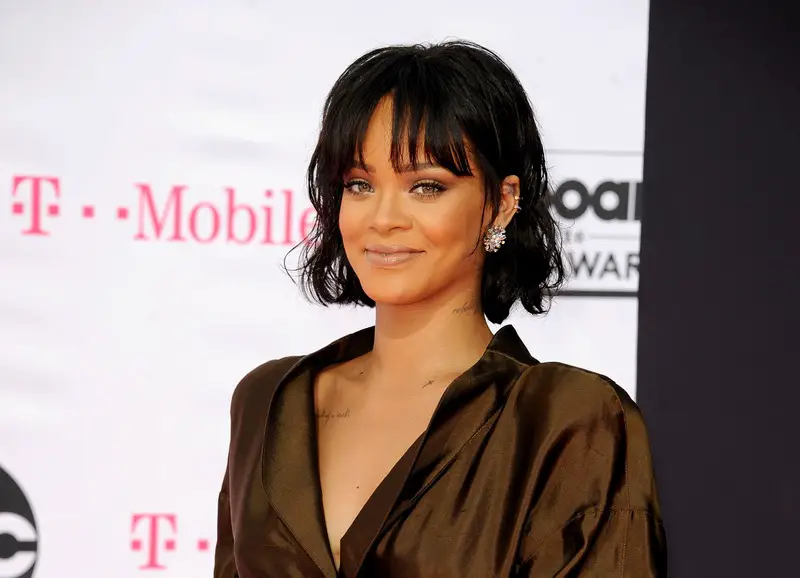Global music star and businesswoman, Rihanna, has ignited a firestorm of discussion this week with her latest Interview Magazine cover, where she appears dressed in a provocative version of a nun’s habit. The cover has stirred up a whirlwind of reactions on social media and among commentators.
Rihanna, the 36-year-old originator of Fenty Beauty, is known for inciting cultural debates. On the contentious cover, she is seen wearing traditional nun’s garb modified with a particularly daring design featuring an open blouse that exposes her cleavage. The look is completed with bold makeup, including baby blue eyeshadow, bright red lipstick, and a small black cross tattoo on her cheek.
The response on the internet was immediate and mixed. While some praised the Barbadian singer’s audacious artistic expression, others labeled it as disrespectful and inconsiderate. “Can’t do art without messing with other people’s religion? Is this how desperate celebs have become?” one Instagram user asked, reflecting a common sentiment of frustration.
Critics contend that the imagery makes a mockery of religious symbols and clothing, with one comment encapsulating the general dissatisfaction: “Our religion is not your marketing toy. Stop this. It’s so annoying.” This backlash underscores a larger debate about the boundaries of artistic freedom and respect for culture.
Supporters of the cover argue for artistic expression and refer to past instances where celebrities have used religious imagery to question or comment on societal norms. They note that the entertainment industry has a long tradition of reinterpreting religious symbols to stimulate thought or spotlight issues within the church and society. Some also questioned if the same critics take issue with those who wear “provocative nun” costumes during Halloween.
In 2021, Rihanna faced criticism for wearing a pendant of a Hindu god in a topless photograph, and in 2020, she was rebuked for incorporating sacred Islamic texts in a performance.
Rihanna, a mother of two and a self-professed Christian, has stated that relying on God helps her remain true to herself. In a previous interview, she attributed her faith with aiding her in dealing with challenges, including feelings of estrangement from God during difficult times.
This controversy also brings to light broader conversations about the overlap of religion and pop culture. A cultural critic noted, “Popular entertainers have often altered religious symbols as part of marketing campaigns, music videos, and live performances.”
Rapper Lil Nas X has also encountered controversy over religious themes. In January, he issued an apology after Christians expressed their displeasure that his song “J. Christ” ridiculed Christianity. In 2021, he launched a limited edition of Satan-themed sneakers that included symbols such as a pentagram and an inverted cross. The shoes were purported to contain a blend of ink and a droplet of human blood in their soles, with only 666 pairs available.
Despite the backlash, Rihanna continues to be an individual who persistently challenges the norms of fashion and pop culture. This recent controversy mirrors past instances where she has successfully navigated the intricate terrain of cultural representation and artistic expression.











